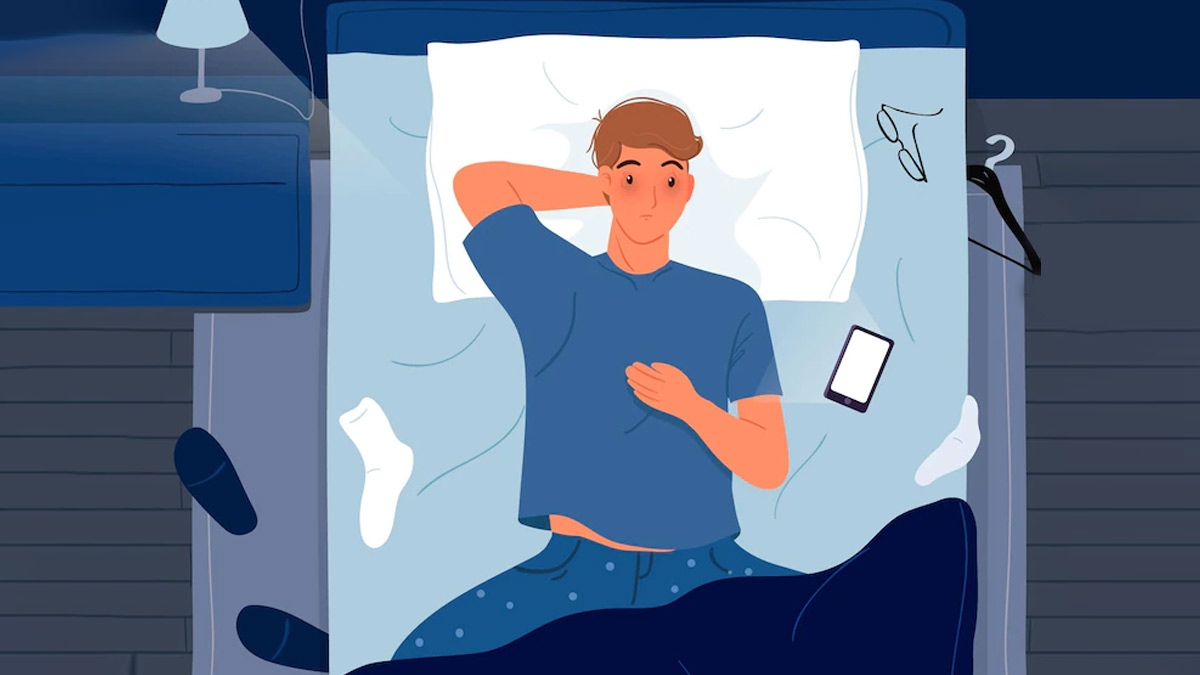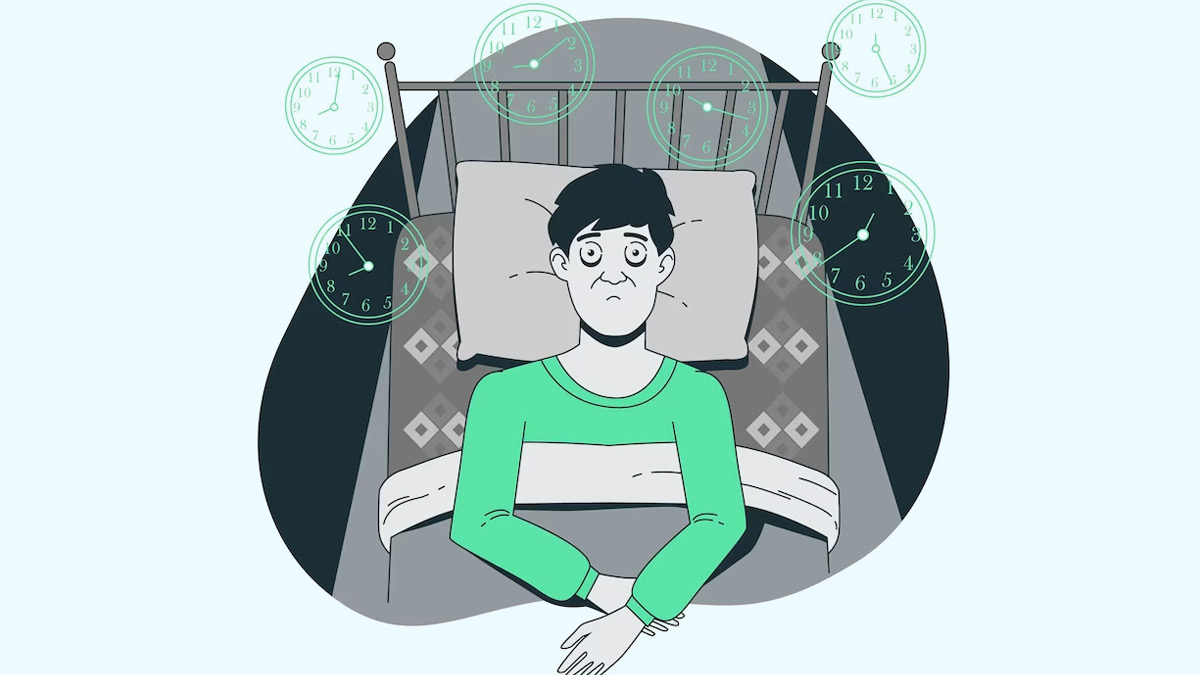
Insomnia is marked by difficulties falling asleep, staying asleep, or having restorative sleep.
Restorative sleep helps the body to repair and replenish cellular components required for biological activities that become exhausted during the course of an awake day.
Table of Content:-
Chronic insomnia, in addition to the occasional restless night, can have a substantial influence on one's physical and emotional well-being.
According to the National Heart Lung and Blood Institute, chronic (long-term) insomnia occurs three or more evenings per week for more than three months and cannot be explained adequately by another health concern.
Recognising the signs is important for timely action and overall health improvement. Here are ten symptoms of sleeplessness and their potential consequences:
Difficulty Falling Asleep
One suffering with insomnia often finds it challenging to initiate sleep, lying awake for prolonged periods. This difficulty in "switching off" the mind can be a key indicator of insomnia.

Frequent Nighttime Awakenings
Waking up multiple times during the night disrupts the natural sleep cycle, preventing the individual from reaching the deep, restorative stages of sleep. This fragmented sleep can lead to daytime fatigue and irritability.
Suddenly Waking Up In Morning
Insomnia can cause individuals to wake up earlier than desired, robbing them of precious sleep hours. This early awakening often leads to a sense of tiredness throughout the day.
Also read: Insomnia: Know About Different Types Of Insomnia
Non-Restorative Sleep
Even if individuals with insomnia manage to sleep for a sufficient duration, they may still wake up feeling unrefreshed and fatigued. This lack of restorative sleep contributes to decreased cognitive function and diminished overall well-being.
Daytime Fatigue and Sleepiness
Insomnia doesn't just affect the night; it extends its grasp into waking hours, causing persistent fatigue, drowsiness, and difficulty concentrating during the day.
Irritability and Mood Swings
Sleep is closely linked to emotional regulation, and chronic sleep deprivation can lead to increased irritability, mood swings, and heightened stress levels. This emotional instability can strain relationships and impact daily life.
Difficulty Concentrating and Impaired Memo
Insomnia affects cognitive function, impairing concentration and memory. Individuals may struggle to focus on tasks, experience forgetfulness, and find it challenging to learn new information.
Increased Anxiety and Depression Risk
The relationship between insomnia and mental health is bidirectional. While insomnia can contribute to anxiety and depression, these mental health conditions can, in turn, increase the symptoms of insomnia. Breaking this cycle often requires addressing both aspects simultaneously.

Heightened Sensitivity to Stimuli
Insomniacs may become more sensitive to external stimuli, such as light and noise, making it difficult for them to create a sleep-conducive environment. This heightened sensitivity further impedes their ability to fall and stay asleep.
Physical Symptoms
Insomnia can manifest physically, leading to headaches, muscle tension, and gastrointestinal issues. These symptoms add to the overall burden of the disorder, impacting the individual's quality of life.
Also read: Can Menopause Cause Insomnia? Know The Connection Between These Two Conditions
Symptoms of insomnia is the first step towards obtaining suitable treatment and reestablish the regular sleep habits. Changes in lifestyle, cognitive-behavioural therapy, and, in some situations, medication can all be useful therapies. Those who experience persistent sleep problems must contact a healthcare practitioner in order to address the underlying causes of insomnia and work towards getting restful, restorative sleep.
Also watch this video
How we keep this article up to date:
We work with experts and keep a close eye on the latest in health and wellness. Whenever there is a new research or helpful information, we update our articles with accurate and useful advice.
Current Version